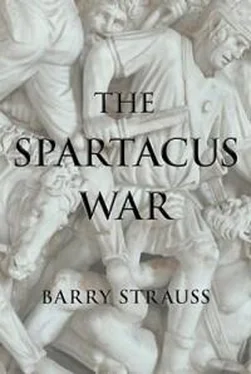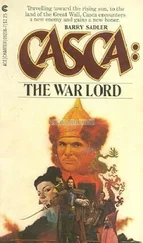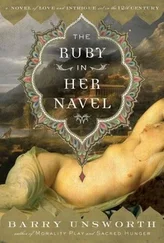Some valuable studies of Roman logistics, equipment, marching order and discipline are M.C. Bishop and J.C.N. Coulston, Roman Military Equipment from the Punic Wars to the Fall of Rome (London: B.T. Batsford, 1993); J.P. Roth, The Logistics of the Roman Army at War (264 BC - AD 235) (Leiden: Brill, 1999).
On piracy in the Roman Mediterranean, see P. De Souza, Piracy in the Graeco-Roman World (Cambridge: Cambridge University Press, 1999) and the still valuable H.A. Ormerod, Piracy in the Ancient World. An Essay in Mediterranean History (Liverpool: The University Press of Liverpool, 1924).
On the Roman ideal of single combat, see S.P. Oakley, ‘Single Combat in the Roman Republic’, The Classical Quarterly 35, no.2 (1985): 392-410. See also the stimulating remarks of J.E. Lendon in Soldiers and Ghosts: A History of Battle in Classical Antiquity (New Haven, Conn.: Yale University Press, 2006), esp. 172-232.
On ‘barbarian’ warfare, see C. Webber, The Thracians 700 BC - AD 46 (Oxford: Osprey Publishing, 2001); S. Allen, Celtic Warrior, 300 BC - AD 100: Weapons, Armour, Tactics (Oxford: Osprey Military, 2001); J.-L. Brunaux, Guerre et Religion en Gaule: Essai D’Anthropologie Celtique (Paris: Editions Errance, 2004); Daithi O’Hogain, Celtic Warriors: The Armies of One of the First Great Peoples in Europe (New York: St Martin’s Press, 1999).
On guerrilla warfare and counter-insurgency, see R.B. Asprey, War in the Shadows, The Guerrilla in History, vol. I (Garden City, NY: Doubleday & Company, 1975); R. Taber, War of the Flea. The Classic Study of Guerrilla Warfare (Washington, DC: Brassey’s, 2002); and C.E. Calwell, Small Wars: Their Principles and Practices, 3rd edn, with an introduction by Douglas Porch (Lincoln: University of Nebraska Press, 1996).
Thracians, Celts and Germans
Introductions to the ancient Thracians include R.F. Hoddinott, The Thracians (London: Thames & Hudson, 1981); Alexander Fol and Ivan Mazarov, Thrace and the Thracians (New York: St Martin’s Press, 1997); L. Casson, ‘The Thracians’, The Metropolitan Museum of Art Bulletin 35, no.1 (1977): 2-6. N.M.V. de Vries, ‘Die Stellung der Frau in der Thrakischen Gesellschaft’, Dritter Internationaler Thrakologischer Kongress 2 (1984): 315-21, is fundamental on Thracian women.
There is a large bibliography on the Celts. Two good introductions are B. Cunliffe, The Ancient Celts (Oxford: Oxford University Press, 1997); J. Haywood, Atlas of the Celtic World (London: Thames & Hudson, 2001). For the documents, see P. Freeman, War, Women and Druids. Eyewitness Reports and Early Accounts of the Ancient Celts (Austin: University of Texas Press, 2002). On Celtic women, see M. Green, Celtic Goddesses: Warriors, Virgins and Mothers (London: British Museum, 1995); P.B. Ellis, Celtic Women: Women in Celtic Society and Literature (London: St Edmundsbury, 1995).
For an introduction to the ancient Germans, see Anthony King, Roman Gaul and Germany (Berkeley: University of California Press, 1990).
For general considerations on Romans and barbarians, see B.W. Cunliffe, Greeks, Romans and Barbarians: Spheres of Interaction (New York: Methuen, 1988); P.S. Wells, Beyond Celts, Germans and Scythians: Archaeology and Identity in Iron Age Europe (London: Duckworth, 2001).
Mary Beard, John North and Simon Price, Religions of Rome, 2 vols. (Cambridge; Cambridge University Press, 1998), is an essential history and sourcebook. Valerie Warrior offers a concise introduction in Roman Religion (Cambridge: Cambridge University Press, 2006).
On the messianic aspects of the Roman slave revolts, see N.A. Mashkin, ‘Eschatology and Messianism in the Final Period of the Roman Republic’, Philosophy and Phenomenological Research 10(2)(1949): 206-28, and P. Masiello, ‘L’Ideologica Messianica e le Rivolte Servili’, Annali della Facolta‘ di lettere e filosofia 11 (1966): 179-96.
A concise analysis of the Bacchanalia affair of 186 BC can be found in J.A. North, ‘Religious Toleration in Republican Rome’, Proceedings of the Cambridge Philological Society 25 (1979): 85-103. See also P.G. Walsh, ‘Making a Drama out of a Crisis: Livy on the Bacchanalia’, Greece & Rome 43 (1996): 188-203. A detailed and sophisticated analysis bringing in an archaeological perspective is J.-M. Pailler, Bacchanalia: la répression de 186 av. J.-C. à Rome et en Italie (BEFAR 270) (Rome: Ecole Française de Rome, 1988).
On Thracian religion, see Ivan Marazov, ‘Thracian Religion’, in Alexander Fol and Ivan Marazov, Thrace and the Thracians (New York: St Martin’s Press, 1977), 17-36; S.E. Johnson, ‘The Present State of Sabazios Research’, in H. Temporini and W. Haase, eds., Aufstieg und Niedergang der römischen Welt vol.II 17.3. (1984): 1583-613; A. Fol, The Thracian Dionysos. Book One: Zagreus (Sofia: St Kliment Ohridski University Press, 1991); A. Fol, The Thracian Dionysos. Book Two. Sabazios (Sofia: St Kliment Ohridski University Press, 1994); N. Dimitrova, ‘Inscriptions and Iconography in the Monuments of the Thracian Rider’, Hesperia 71, no.2 (2002): 209-29.
On Celtic religion, see J.-L. Brunaux, The Celtic Gauls: Gods, Rites and Sanctuaries (London: Seaby, 1988); M.J. Green, The World of the Druids (London: Thames & Hudson, 1997); N.K. Chadwick, The Druids (Cardiff: University of Wales Press, 1997).
On the use of Dionysus as a political symbol in the Hellenistic world, see Walter Burkert, ‘Bacchic Teletai in the Hellenistic Age’, in Thomas H. Carpenter and Christopher A. Faraone, eds., Masks of Dionysus (Ithaca: Cornell University Press, 1993), 259-75, esp. 259-70.
On heroization and divine honours for great men in the Late Roman Republic, see Stefan Weinstock, Divius Julius (Oxford: Clarendon Press, 1971), 287-97; Itta Gradel, Emperor Worship and Roman Religion (Oxford: Clarendon Press, 2002), 27-53. On the widespread belief that successful Roman Republican generals were supernaturally inspired, see J.P.V.D. Balsdon, ‘Sulla Felix’, Journal of Roman Studies 41.1-2 (1951):1-10.
Italian Topography and Archaeology
Basic introductions to the Italian geographical context of Spartacus’s revolt include T.W. Potter, Roman Italy (Berkeley: University of California Press, 1990); R. Ross Holloway, The Archaeology of Ancient Sicily (London and New York: Routledge, 2000), and guidebooks in the Blue Guide series such as P. Blanchard, Southern Italy (London: A&C Black Publishers, 2004). H.V. Morton, A Traveller in Southern Italy (London, Methuen & Co, 1969), is impressionistic but stimulating.
R.J. Buck published a series of studies on the ancient roads of Lucania between 1971 and 1981: R.J. Buck, ‘The Via Herculia’, Papers of the British School at Rome 39 (1971): 66-87; R.J. Buck, ‘The Ancient Roads of Eastern Lucania’, Papers of the British School at Rome 42 (1974): 46-67; R.J. Buck, ‘The Ancient Roads of Southeastern Lucania’, Papers of the British School at Rome 43 (1975): 98-117; R.J. Buck, ‘The Ancient Roads of Northwestern Lucania and the Battle of Numistro’, Parola del Passato 36 (1981):317-47.
The following regional and local studies are helpful. On the archaeology and history of Campania, see M. Frederiksen, Campania (Hertford: Stephen Austin, 1984). On Capua, see S. De Caro and Valeria Sampaolo, Guide of Ancient Capua (Santa Maria Capua Vetere: Soprintendenza Archeologica delle province di Napoli e Caserta, 2000). On ancient Lucania, see E. Isayev, Inside Ancient Lucania: Dialogues in History and Archaeology (London: Institute of Classical Studies, University of London, 2007). There is a brief but illuminating discussion of the Roman Republican era at Metapontum in J.C. Carter, Discovering the Greek Countryside at Metaponto (Ann Arbor: The University of Michigan Press, 2006); Antonio De Siena, Metaponto, Archeologia di una Colonia Greca (Soprintendenza Archeologica della Basilicata, Taranto: Scorpione Editrice, 2001); Franco Liguori, Sybaris Tra Storia e Leggenda (Castrovillari: Bakos, 2004).
Читать дальше












